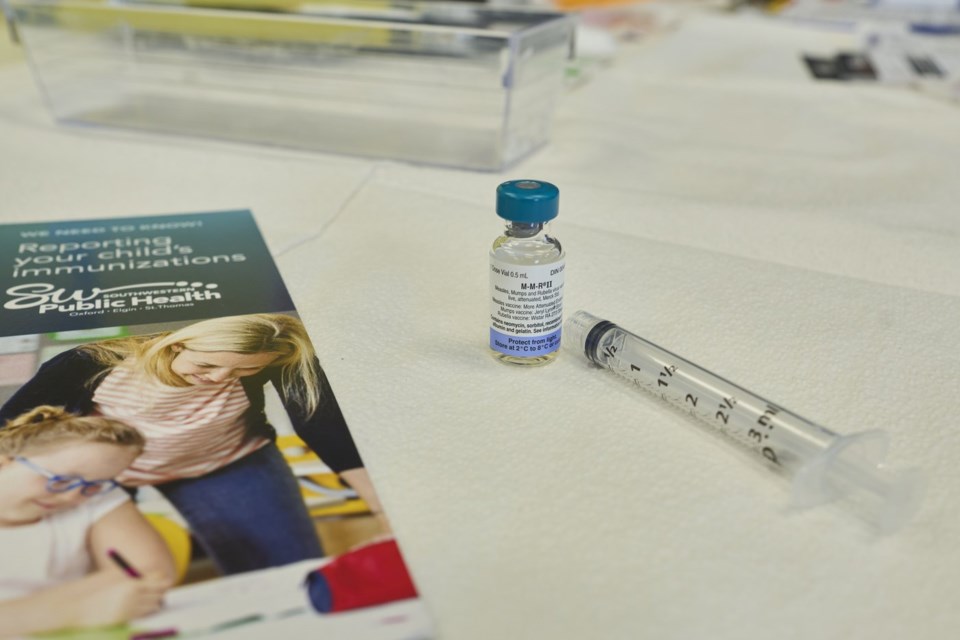TORONTO — Ontario schools are starting to issue suspensions to some of the thousands of students who aren't fully vaccinated, as measles continue to spread and the outbreak breathes new urgency into a call for the province to digitize its immunization record system.
Toronto Public Health says about 10,000 students are not-up-to-date on their vaccinations, and a first group of 173 students in Grade 11 will be suspended Tuesday.
A total of 574 students were sent suspension orders, which will continue to roll out across Toronto high schools until May.
TPH says students can avoid suspension and return to school by showing proof of vaccination or completing a valid exemption.
Ottawa Public Health says approximately 15,000 notices of incomplete immunization records were handed out to students in mid-January, and suspensions are taking place March to May. In Waterloo, more than 1,600 students were suspended last week.
Under the Immunization of School Pupils Act, students must be vaccinated against various diseases including measles, whooping cough and tetanus.
However, most people in the province still track their shots on paper, which the Ontario Immunization Advisory Committee is encouraging the ministry of health to change.
The committee said in a position statement that it “strongly urges” the province to develop an electronic immunization registry, which would replace the current method of keeping track of shots on yellow paper.
That statement was published in September, says Dr. Jeffrey Pernica, co-chair of the committee. Yet it's only getting major attention now because of measles.
"It took a measles outbreak to really highlight why it's good for individuals to be able to know what vaccines they've received," says Pernica, adding that there would be far fewer suspensions if an electronic immunization registry existed.
Ottawa-based Dr. Kumanan Wilson has been advocating for this since 2011, when he launched an app to track vaccinations.
He's hopeful measles might be the push that the province needs to pivot to a digital system.
The outbreak has infected 661 people in Ontario, primarily unvaccinated children.
Because it is one of the most contagious diseases in the world, it requires vaccination coverage of about 95 per cent.
“Small gaps in knowledge on vaccination coverage can result in outbreaks,” he says.
At the moment, the immunization data the province has collected is mostly limited to school-aged children. Wilson says that means data on infants to six-year-olds is not comprehensive, of particular significance with measles, which has resulted in the hospitalization of 42 children.
Wilson says lack of appropriate record-keeping might also be leading to the student suspensions.
“It may not even be anti-vaccination attitudes. It may just be that people don't know.”
Dr. Vinita Dubey, Toronto's associate medical officer of health, expects "compliance will exceed 90 per cent" after all the notices are sent out, noting current Grade 11 students missed school-based vaccinations in Grade 7 due to the COVID-19 pandemic.
Ontario’s measles outbreak has drawn international attention with health officials in New York issuing a travel advisory last week that noted the province’s spread.
The April 2 advisory stated, “Measles is only a car ride away!”
This report by The Canadian Press was first published April 8, 2025.
Canadian Press health coverage receives support through a partnership with the Canadian Medical Association. CP is solely responsible for this content.
Hannah Alberga, The Canadian Press



